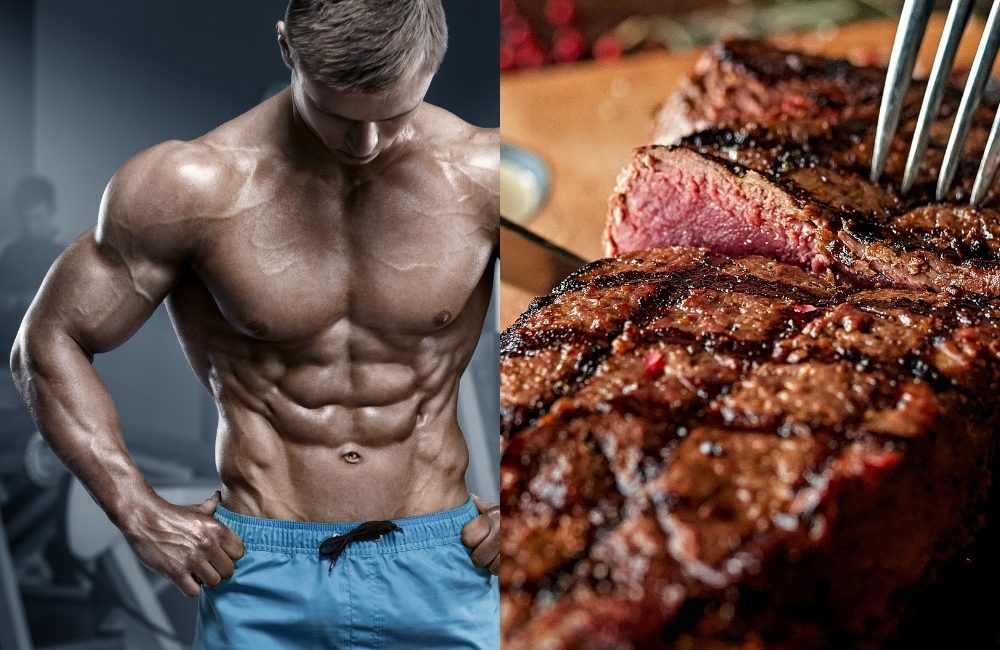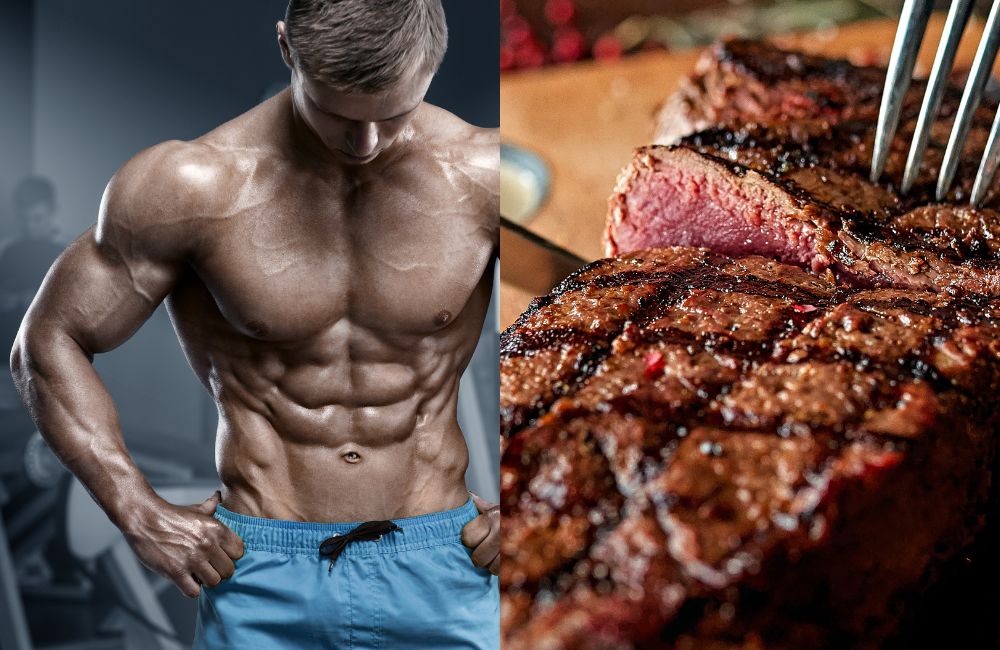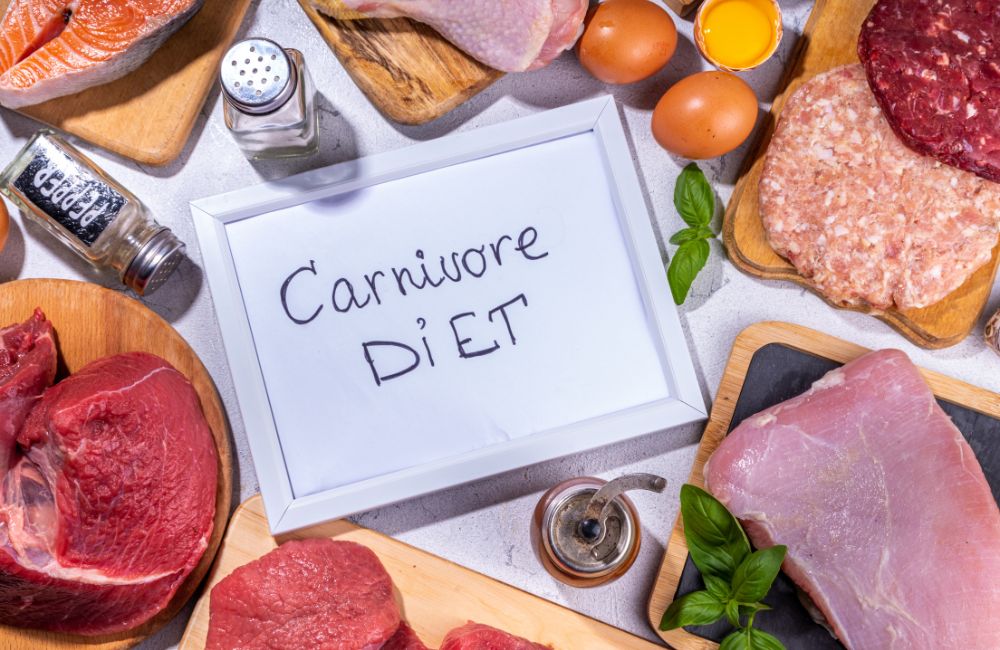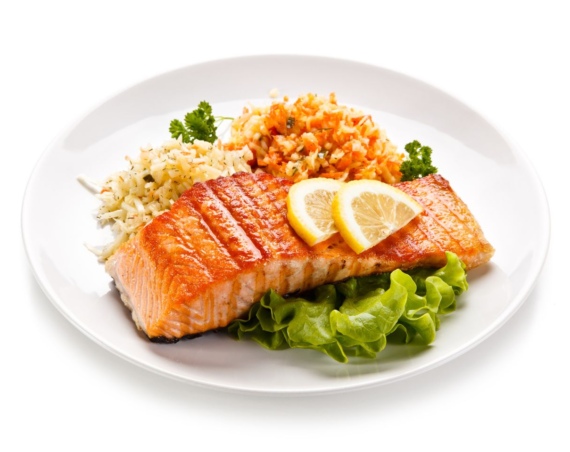
With new diet trends emerging on an almost weekly basis, it’s hard to know which ones are worth the hype and which are a fad. The newest diet in town is no exception.
The carnivore diet has been around for ages, but only recently brought back into the spotlight.
Touted as a great option for weight loss, this diet can be seen by some as a dramatic take on the new-age Keto diet. What is the carnivore diet and should more of us be doing it?
What Is the Carnivore Diet?

The carnivore diet is a nutrition plan created by former Orthopedic doctor Shaun Baker.
It is a restrictive eating pattern that consists of animal products only. This means your only food choices are meat, fish, eggs, and some low-lactose dairy products.
No fruit, vegetables, beans, legumes, grains, or other non-animal products are allowed. Although this diet may seem like a dream come true for meat lovers, it’s not as easy as you might think.
The carnivore diet restricts all other food groups. It is based on the belief that high carbohydrate intake is the cause of the increase in chronic diseases.
Unlike keto, which limits carbohydrates to a certain amount, the carnivore diet prohibits them completely. The carnivore diet does not restrict calories, eating times, or portions.
Believers in the diet claim it can help treat conditions such as obesity, depression, anxiety, diabetes, and more. Yet, there is currently no scientific evidence to back this up.
Shaun Baker’s medical license was revoked in 2017 due to competency concerns. Although it was reinstated in 2019, many concerns remain (1).
How Does the Carnivore Diet Help You Lose Weight?

Many studies have found high protein, low carbohydrate diets to be beneficial for weight loss. Protein is very satiating, which allows for a lower caloric intake overall.
Some studies also report findings that protein can help boost metabolism.
The more efficient your metabolism works the more calories you burn at rest. If your metabolism is working more efficiently and you are eating less you will likely see weight loss (2, 3).
Although there is promising research to suggest weight loss might be a result of the carnivore diet, it does not need to be that restrictive. To see results, carbohydrates do not need to be eliminated.
In fact, removing them completely makes it a lot less likely someone will stick with this diet for the long term. If the diet itself is not sustainable, any amount of weight loss will return once you stop participating.
Benefits of the Carnivore Diet

Because the carnivore diet is so restrictive, it eliminates most processed foods. This includes cakes, cookies, candies, soda, and more.
These foods are associated with weight gain and an increased risk of developing obesity, diabetes, and heart disease. Removing these foods from the diet could result in weight loss.
It could also help improve blood sugar control. But eliminating entire nutrient groups is not recommended. Carbohydrates are an essential nutrient. Even those who struggle with insulin resistance and type 2 diabetes need carbs (4).
Drawbacks of the Carnivore Diet

Despite its restrictive nature which naturally makes it unsustainable for the long term, the carnivore diet is high in fat.
When consuming a diet made up of only animal products, it’s naturally high in saturated fat. A high saturated fat diet can increase the risk of heart disease (5).
Because this diet is so limited, the type of meat you chose may also result in a high sodium intake.
Processed meats such as deli meats, sausage, and bacon, contain high amounts of sodium. A high sodium diet can increase the risk of developing high blood pressure and kidney disease (6).
Lastly, the restrictive nature of the carnivore diet leaves room for significant nutrient deficiencies.
Without fruits, vegetables, and grains, a diet lacks fiber. Fiber is an essential nutrient for bowel regulation and gut health.
It will also contribute to a diet that is low in antioxidants and various vitamins and minerals. This includes vitamin C, potassium, and magnesium (7).
Some populations may not be suitable for the carnivore diet due to the high protein content. When your diet is only meat, you are likely eating more protein than the average recommendation.
According to the USDA, 10-35% of your total calories should come from protein. Those with a history of kidney disease should limit protein intake and avoid participating in this diet.
Those with a history of heart disease or high cholesterol should also avoid this diet due to the high saturated fat content in animal products (8).
Carnivore Diet Approved Foods List
- Below is a list of approved foods on the carnivore diet:
- Meat (beef, organ meats, lamb, pork, etc.)
- Poultry (chicken, turkey, etc.)
- Fish (salmon, mackerel, sardines, tuna, tilapia, etc.)
- Shellfish (crab, lobster, shrimp, etc.)
- Eggs
- Low lactose dairy (heavy cream, hard cheeses, butter)
Foods to Avoid on The Carnivore Diet
- Fruits
- Vegetables
- Grains
- High-lactose dairy (milk, yogurt)
- Nuts and seeds
- Beans and legumes
- Alcohol
- Sugar
5-Day Carnivore Diet Meal Plan Sample Menu
Monday :
- Breakfast: 2-3 eggs and 2 slices of bacon
- Lunch: 1-2 chicken breast with cheddar cheese
- Dinner: Shredded beef in bone broth
- Snack: turkey jerky
Tuesday:
- Breakfast: 2 eggs with 1-3 ounces smoked salmon
- Lunch: Streak with shrimp and a small amount of parmesan cheese
- Dinner: 2 beef patties with butter
- Snack: Sardines
Wednesday:
- Breakfast: 2 eggs with 2 turkey sausage links
- Lunch: Scallops with butter and shredded chicken
- Dinner: Lamb roast with heavy cream and parmesan
- Snack: Can of tuna in water
Thursday:
- Breakfast: Steak and eggs
- Lunch: Salmon patties with shrimp
- Dinner: Ground beef with cheddar cheese
- Snack: beef liver
Friday:
- Breakfast: 2 egg omelets with heavy cream and bacon
- Lunch: Flank steak cooked in butter
- Dinner: Pork chops with cheddar cheese
- Snack: beef jerky
Bottom Line
Although this diet may be tempting for meat lovers, it lacks scientific evidence. Eliminating entire nutrient groups opens a risk for developing severe nutrient deficiencies.
It also increases your risk of developing heart disease or high blood pressure. Instead, aim for balance with your meals.
Having a combination of the different food groups at each meal ensures you are giving your body the nutrients it needs. If you are not sure how to do this, consider consulting with a Registered Dietitian for a plan that’s tailored to you.


